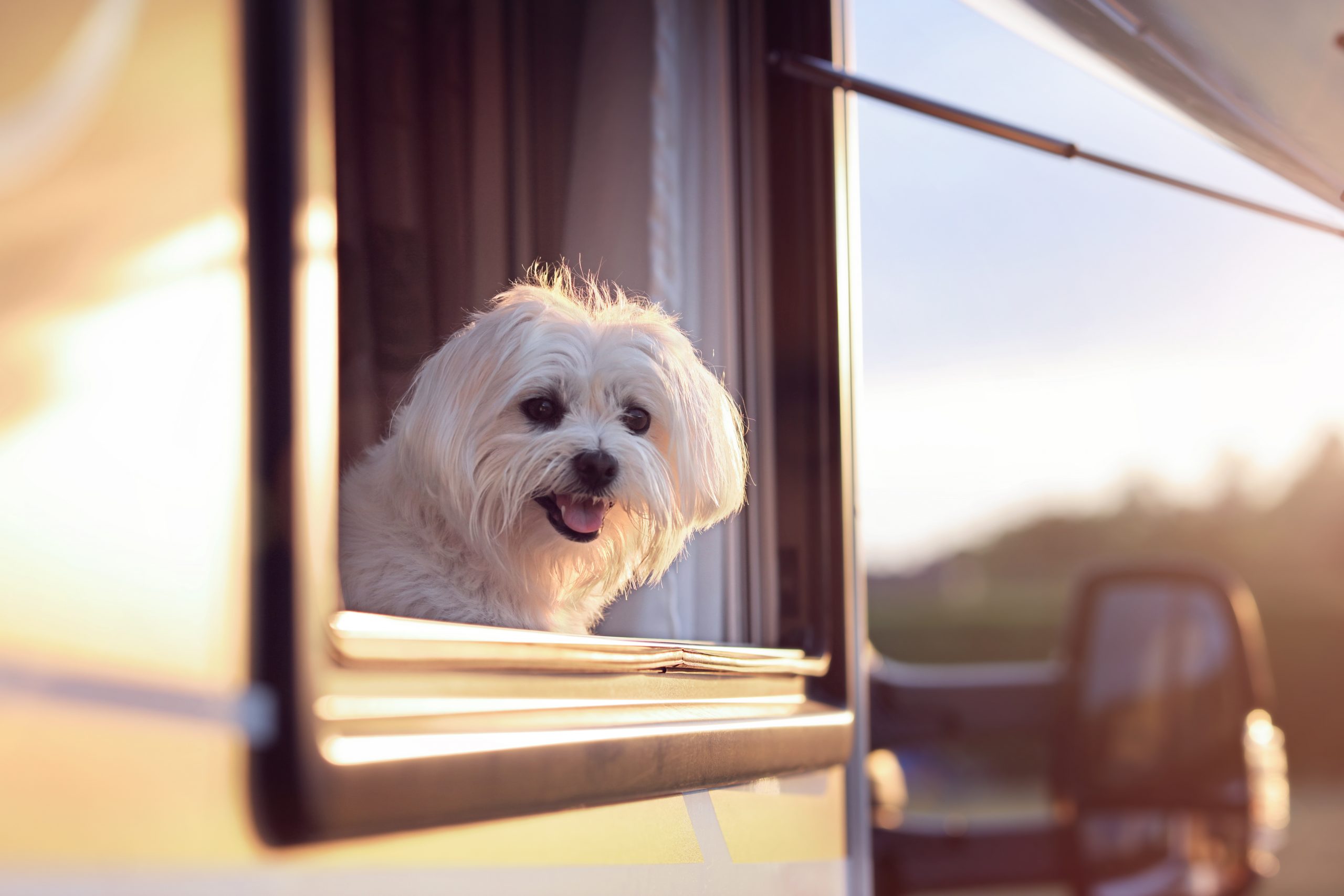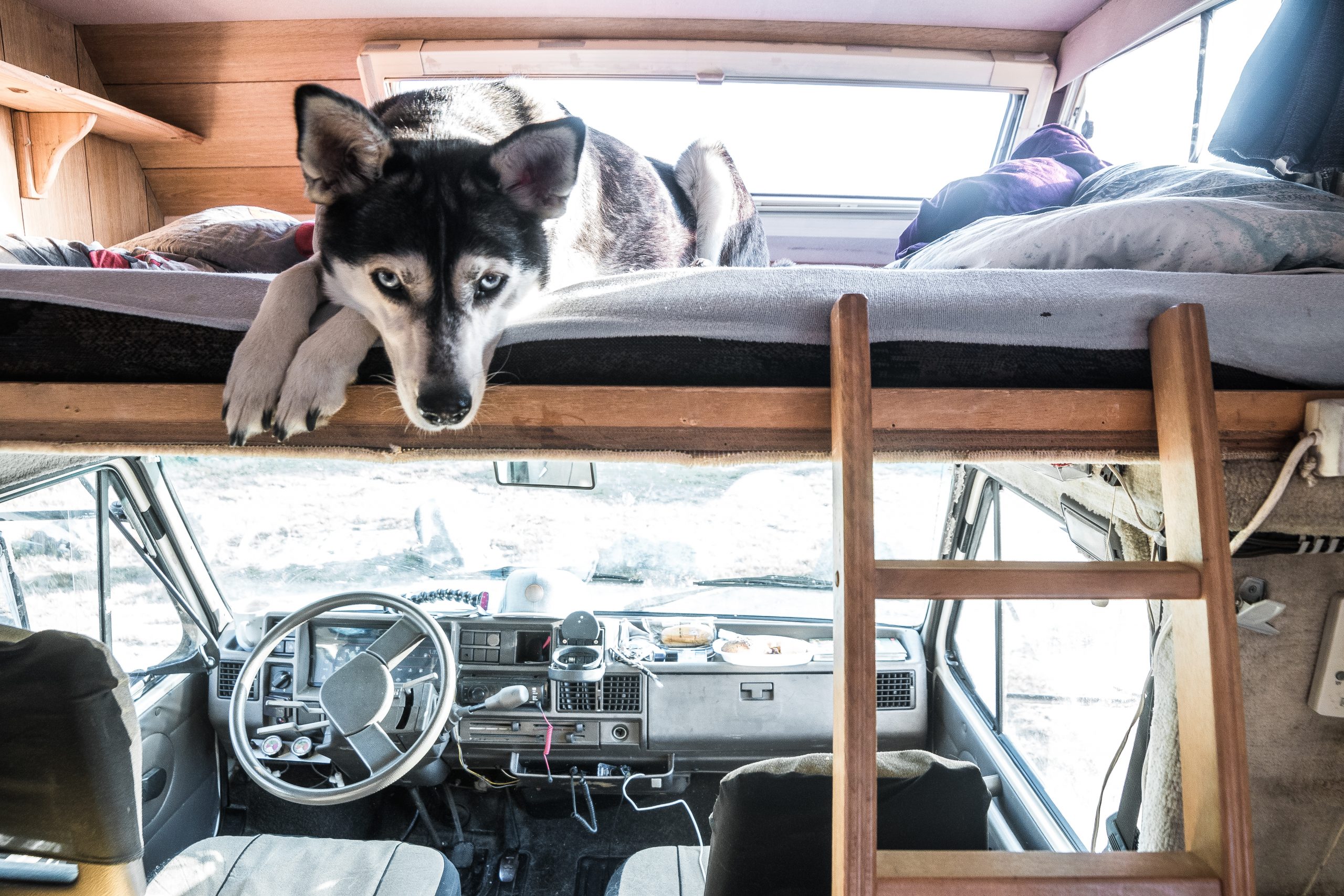Why You Should Do an Annual Vet Checkup Even if You’re on the Road
Make sure your furry friends stay healthy, too!
Image Caption:
If you ask most animal lovers they’ll tell you one of the best parts of traveling in an RV—over staying in a hotel or rental home—is that you get to bring your pets along with you. Fluffy and Fido are right at home in an RV and will love getting back to their roots in “wilderness” campsites.
(It’s not the purpose of this article, but it’s important to remember that pets usually aren’t allowed on hiking trails inside national parks. Also, when you travel with your pet and you’re pulling a travel trailer, they should ride up in the cab of your towing vehicle with you.)
Just because you’re traveling doesn’t mean you can take the health and safety of your pet for granted. They may have a great time, but just like you, they can still get sick. An annual vet checkup is important to make sure they’re happy, healthy, and can continue to love life on the road as much as you do.
Here are a few reasons why you should always do an annual vet checkup even if you’re on the road.
Reasons to Schedule a Vet Appointment On the Road
Exposure to Other Environments and Animals
Just like humans, when pets travel to different places, they’re being exposed to things their bodies aren’t necessarily used to. Akin to when people travel abroad and are discouraged from drinking the local water, for example, similar ailments can strike pets. And what’s worse, they usually don’t understand that they need to refrain from certain things.
Taking your pup on a hike can introduce them to a variety of different kinds of flora, and they may not all agree with them. Even different kinds of allergies can have a lasting effect on your animal, and these kinds of changes can be diagnosed and handled appropriately in a vet checkup.
Beyond the local environment, there’s also a chance that Spot could have an encounter with a wild animal. RV parks—and even some higher-end resorts—are often situated in the woods. (It’s why they still call it “camping” when you’re in an RV.) Where there are woods and natural environments, you’ll often find critters. Hopefully, your precious pooch (or cat) won’t come into contact with one who’s particularly aggressive, but sometimes otherwise home-bound hounds can be instigators. Or worse yet, they may take a chomp out of something they find along the side of the road and pick up something that doesn’t agree with them.
None of this is to say that you shouldn’t allow your pet to be perfectly adventurous and get them out of the RV for plenty of exercise. It’s just a reminder that a vet check-up is always a good idea.
Life in an RV
Humans tend to be pretty adaptive. Our animals, less so. And especially when trying to get used to life on the road. Our favorite friends can get easily confused when they wake up in a new place every day. And it’s particularly difficult for them to find their “road” legs when you’re in a coach and they’re in the cabin with you.

These little changes add up and can have an effect on your pet. Find that your furry friend is experiencing motion sickness? The vet may have a suggestion for that. Developed a skin irritation since you visited that little patch of grass outside of Tulsa? Could well be a common allergy. Suddenly experiencing severe separation anxiety anytime you step outside of your rig? There could be a very simple cause behind it.
It’s likely your animal will adapt to its new lifestyle on the road, but it may take longer than it takes you. Your vet may be able to get your pet on the right path.
Health Check-Up
Just like you and me, it’s important for our animals to have a general check-up. No matter where they are—life on the road or life at home—as your animal ages it requires different things, and standard check-ups are a great way to learn about how your pet is doing at the moment and things you can do to make its life even better.
Best Ways to Plan a Vet Visit on the Road
Keep a Journal
Notes are going to be your best friend’s best friend when you visit the vet. If he or she has been acting strangely, or you’ve noticed anything that just seems different, list out the day and time you noticed, where you’ve been the last few days, and any particular changes (like if you’ve bought different food). The environment may be having an impact, like if you’re driving hillier terrain than normal. But based on all of this information, your vet can make a more informed diagnosis.
Book Ahead
Veterinarians are notoriously difficult to book. They fill up fast, mostly because so many people care so much about their pets—it’s a good thing. However, it can be difficult to get in somewhere on a whim when you’re traveling to and fro without any real plan. If you’ve got any semblance of where you’re going to be in the future, try to book an appointment as far in advance as possible.

Ask Your Vet
No, not all vets know one another. But you never know if your vet has some kind of contact in another part of the country. Even if they can’t recommend another vet, it’s good to let them know you’ll be on the road. Once you find a vet on the road you plan to visit, make your current doc aware—and they can have your furry friend’s record ready to forward over in advance. This lets the vet-of-the-moment know and understand your animal’s health and medical history, and may give even greater insight into any issues that may come up.





